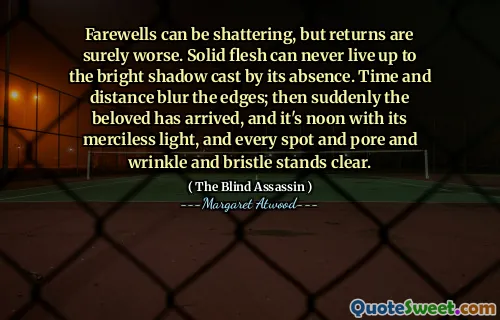She takes after Laura in that respect: the same tendency towards absolutism, the same refusal to compromise, the same scorn for the grosser human failings. To get away with that, you have to be beautiful. Otherwise it seems mere peevishness.
In "The Blind Assassin" by Margaret Atwood, the character's resemblance to Laura highlights a shared trait of absolutism. This quality indicates a strong inclination to hold firm beliefs without flexibility, which leads to a disdain for the more common flaws seen in human behavior. The narrative suggests that such rigidity can be more easily accepted if one possesses beauty, as it can mitigate perceptions of unyielding attitudes.
Beauty serves as a form of privilege, allowing those who embody it to express their uncompromising views without facing harsh judgment. In contrast, those lacking beauty may be dismissed as merely irritable or petulant for similar behaviors. This observation raises questions about societal values and how they can influence the interpretation of character traits based on superficial qualities.



